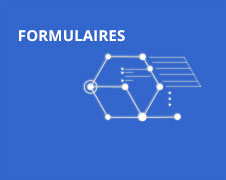El Bachir Affar
Signalisation cellulaire via l'ubiquitination
- Professeur titulaire
-
Faculté de médecine - Département de médecine
- Professeur accrédité
-
Faculté de médecine - Département de biochimie et médecine moléculaire
Profile
Research expertise
Ubiquitination of proteins is a post-translational modification required for a wide spectrum of biological functions, and defects in several processes involving ubiquitination underlie human diseases. The best characterized ubiquitination reaction involves the formation of polyubiquitin chains, leading to the degradation of target proteins by the proteasome. However, ubiquitination is a complex modification that also mediates cellular functions other than protein degradation. Protein modification by ubiquitin is a reversible reaction and specific proteases can remove the ubiquitin moiety. A vast repertoire of deubiquitinases (DUBs), including approximately 80 genes, are encoded by the human genome, and are emerging as important regulators of the ubiquitination-mediated processes. As the DUBs are largely unknown, establishing the biological functions and the molecular mechanisms of these proteases is not only a crucial step toward understanding ubiquitin-mediated signaling, but is also a fundamental aspect of cancer biology. We use functional genomics and proteomics approaches to determine the functions and mechanisms of action of DUB enzymes. Our investigations are primarily on DUB genes that are important for the expression and stability of the genome.
Biography
El Bachir Affar, docteur en physiologie-endocrinologie dirige l'unité de recherche Signalisation cellulaire et cancer de l'Hôpital Maisonneuve-Rosemont. Il est également professeur titulaire au Département de médecine et professeur accrédité au Département de biochimie et médecine moléculaire de l'Université de Montréal.
El Bachir Affar s’intéresse à la signalisation cellulaire via l’ubiquitination, aux processus associés à l’ADN et à la chromatine (transcription et réparation de l’ADN), et aux bases moléculaires du cancer. Son équipe travaille particulièrement sur le gène BAP1, un gène fréquemment muté dans certains types de cancers.
Awards and recognitions
-
2016 Chercheur boursier senior (FRSQ)
-
2011 Jeune chercheur (IRSC)
-
2011 Chercheur boursier junior 2 (FRSQ )
-
2011 Prix finaliste Maud Menten du nouveau chercheur principal (Institut de génétique, IRSC)
-
2007 Chercheur boursier junior 1 (FRSQ)
-
2001 Bourse postdoctorale Taplin (Université Harvard, Boston)
-
1999 Tableau d'honneur du doyen - Doctorat (Université Laval, Quebec)
-
1991 Bourse d'excellence des études supérieures (Ministère de l’éducation du Maroc)
For more information…
- 21-01-2016 Dr. Affar El Bachir: les mécanismes qui mènent aux changements cellulaires...
- 26-10-2018 Mécanisme de protection de l’organisme : l’union des protéines fait la force face au cancer
-
Moduler le processus d’ubiquitination des protéines au moyen d’inhibiteurs sélectifs...
Défi : Les cellules humaines éliminent les protéines non-fonctionnelles par des voies de dégradation protéique sophistiquées appelées le système ubiquitine protéasome (SUP). Dans ce processus, les enzymes du SUP lient une petite protéine, appelée l’ubiquitine, à des protéines cibles endommagées dans le but de les identifier pour les dégrader par la suite.
- 13-08-2018 Plus de 32 millions de dollars pour la recherche en santé à l’UdeM et à ses affiliés
- 25-10-2018 The body’s defence mechanisms: Teamwork is key for cancer-fighting proteins
Affiliations and responsabilities
Research affiliations
University service and activities
Activities within organizations or entities of the institution
- Membre de l'Oncopole
Teaching and supervision
Student supervision
Theses and dissertation supervision (Papyrus Institutional Repository)
Régulations épigénétiques et cancer : coopération ou antagonisme entre le suppresseur de tumeurs BAP1 et les facteurs de transcription FOXKs ?
Cycle : Doctoral
Grade : Ph. D.
Étude fonctionnelle de la O-GlcNAcylation de FOXK1 et son rôle dans la transformation oncogénique
Cycle : Doctoral
Grade : Ph. D.
Un nouveau mécanisme moléculaire de régulation du système ubiquitine-protéasome par séparation de phase liquide-liquide
Cycle : Doctoral
Grade : Ph. D.
Rôle du système ubiquitine protéasome dans les séparations de phase nucléaires
Cycle : Doctoral
Grade : Ph. D.
Un nouveau mécanisme de régulation des complexes épigénétiques BAP1/ASXLs par ubiquitination
Cycle : Doctoral
Grade : Ph. D.
Investigation du système ubiquitine protéasome et découverte de nouvelles cibles thérapeutiques anti-cancer surpassant la résistance acquise au bortézomib
Cycle : Master's
Grade : M. Sc.
Régulation du complexe suppresseur de tumeurs BAP1/ASXL2 par ubiquitination
Cycle : Master's
Grade : M. Sc.
Régulation du facteur de transcription FOXK1 par O-GlcNAcylation : implications dans la différenciation adipocytaire
Cycle : Master's
Grade : M. Sc.
Caractérisation du rôle transcriptionnel et épigénétique de l’O-GlcNAcylation des histones et du facteur de transcription FOXK1
Cycle : Master's
Grade : M. Sc.
Biochemical and functional characterization of the tumor suppressors BRCA1 and BAP1
Cycle : Doctoral
Grade : Ph. D.
Étude fonctionnelle d’un nouveau complexe multi-enzymatique régulant l’épigénome
Cycle : Doctoral
Grade : Ph. D.
Caractérisation fonctionnelle du suppresseur de tumeurs BAP1
Cycle : Doctoral
Grade : Ph. D.
Regulation of BAP1 tumor suppressor complex by post-translational modifications
Cycle : Doctoral
Grade : Ph. D.
The role of ubiquitination and deubiquitination in the regulation of BRCA1 function during genotoxic stress
Cycle : Master's
Grade : M. Sc.
Rôle de la déubiquitinase BAP1 dans la réponse cellulaire aux dommages à l'ADN
Cycle : Master's
Grade : M. Sc.
Séquestration nucléolaire des histones durant le traitement anticancer à l'inhibition du protéasome : un mécanisme inédit de régulation post-traductionnelle, possiblement à l'origine de la mort cellulaire.
Cycle : Master's
Grade : M. Sc.
Projects
Research projects
Investigating a novel immunomodulatory molecule in checkpoint inhibition of T cells
Influence of Ikaros on treatment response in Acute Lymphoblastic Leukemia
Novel regulatory mechanisms of the mammalian nuclear proteasome through liquid-liquid phase separation
Novel mechanisms of ubiquitin signaling coordinating ribosome maturation and function
A histology suite for visualizing cell distribution in tissues
Novel ubiquitin signaling pathways regulating ASXL family of transcription co-factors
UNRAVELING THE FUNCTION AND THE MECHANISM OF ACTION OF THE DEUBIQUITINASE MYSM1
Supplément COVID-19 CRSNG_UNRAVELING THE FUNCTION AND THE MECHANISM OF ACTION OF THE DEUBIQUITINASE MYSM1
Dual molecular functions of LMO2 as a master oncogene in T-cell acute lymphoblastic leukemia
A Benchtop Cell Sorter for Accelerating the Discovery of Physiopathological Processes
Synthetic inhibitor of ubiquitin-binding cancer targets
Synthetic inhibitor of ubiquitin-binding cancer targets
Stratégies exploitant les voies de signalisation et réparation de l'ADN pour la médecine personnalisée et le cancer.
Le système ubiquitine dans la régulation des processus associés à l' ADN et le cancer
A microcalorimetry system to define the biochemical parameters of molecular interactions
Identifying Cellular Vulnerabilities for the Treatment of Mesothelioma
Roles of the tumor suppressor BAP1in genomic stability
Selective inhibitors of the ubiquitin proteasome system to facilitate anti-cancer drug discovery
Monoubiquitinated histone H2A as a prognostic marker for ovarian cancer
TRANSCRIPTIONAL REGULATION BY A NOVEL DEUBIQUITINASE MULTI-PROTEIN COMPLEX
TRANSCRIPTIONAL REGULATION BY A NOVEL DEUBIQUITINAS MULTI-PROTEIN COMPLEX
TRANSCRIPTIONAL REGULATION BY A NOVEL DEUBIQUITINASE MULTI-PROTEIN COMPLEX
ROLE OF THE DEUBIQUITINASE USP16 IN CELL CYCLE PROGRESSION
LEUKEMIA LYMPHOMA SOCIETY OF CANADA
ROLES DU SYSTÈME UBIQUITINE DANS LA TRANSCRIPTION ET LA REPARATION DE L'ADN
RÔLES DU SYSTÈME UBIQUITINE DANS LA TRANSCRIPTION ET LA RÉPARATION DE L'ADN
ROLE OF THE DEUBIQUITINASE USP16 IN CELL CYCLE PROGRESSION
A NOVEL UBIQUITIN SIGNALING PATHWAY IN THE REGULATION OF BRCA1 (BREAST CANCER 1, EARLY ONSET) TUMOR SUPPRESSOR FUNCTION
CHARACTERIZATION OF NOVEL EPIGENETIC MARKS
MONITORING GENE FUNCTION AND REGULATION IN PHYSIO-PATHOLOGOCAL PROCESSES
Outreach
Autres activités et contributions
- Membre de la Fondation du cancer du sein du Québec
Publications and presentations
Publications
Publications choisies
- Daou, N Mashtalir, I Hammond-Martel, H Pak, H Yu, G Sui, TM. Kristie and EB Affar. Crosstalk Between O-GlcNAcylation And Proteolytic Cleavage Regulates The HCF-1 Maturation Pathway. Proc Natl Acad Sci., 2011;108(7):2747-52
- I Hammond-Martel, H Pak, H Yu, R Rouget, AA Horwitz, JD. Parvin, EA. Drobetsky and EB Affar. PI 3 Kinase Related Kinases-Independent Proteolysis of BRCA1 Regulates Rad51 Recruitment During Genotoxic Stress in Human Cells. PlosONE 10.1371/journal.pone.0014027 (2010).
- H Yu, N Mashtalir, S Daou, I Hammond-Martel, J Ross, G Sui, GW. Hart, FJ Rauscher III, EA Drobetsky, E Milot, Y Shi and EB Affar. The Ubiquitin Carboxyl Hydrolase BAP1 Forms a Ternary Complex with YY1 and HCF-1 and is a Critical Regulator of Gene Expression. Mol. Cell. Biol.30(21):5071-85, (2010). Raphael Rouget , Yannick Auclair, Martin Loignon, El Bachir Affar, Elliot Drobetsky. A sensitive flow cytometry-based nucleotide excision repair assay unexpectedly reveals that mitogen-activated protein kinase signalling does not regulate the removal of UV-induced DNA damage in human cells. Journal of Biological Chemistry, 283(9):5533-5541, (2008).
- Andrew A. Horwitz, El Bachir Affar, George F. Heine, Yang shi, Jeffrey D. Parvin. A novel mechanism for transcriptional repression dependent on the BRCA1 E3 ubiquitin ligase. Proc. Natl. Acad. Sci., 104(16):6614-6619, (2007).
- Yu May Ma, Emmanuel Boucrot, Judit Villen, El Bachir Affar, Steven P. Gygi, Heinrich G. Gottlinger and Tomas Kirchhausen. Targeting of AMSH to endosomes is required for EGF receptor degradation. Journal of Biological Chemistry, 282(13):9805-9812, (2007).
- El Bachir Affar, Margaret Po-shan Luke, Frédérique Gay, Dominica Calvo, Guangchao Sui, Robert S. Weiss, En Li, and Yang Shi. Targeted Ablation of Par-4 Reveals a Cell-Type Specific Susceptibility To Apoptosis-Inducing Agents. Cancer Research, 66(7):3456-3462, (2006)
- El Bachir Affar*, Frédérique Gay*, Yujiang Shi, Huifei Liu, Maite Huarte, Su Wu, Collins Tucker, En Li, and Yang Shi. Essential dosage-dependent functions of the transcription factor Yin Yang 1 in late embryonic development and cell cycle progression. Molecular and Cellular Biology, 26(9):3565-3581, (2006). * Equal Contribution.
- Sang Ki Park, Minh Dang Nguyen, André Fisher, Margaret Po-Shan Luke, El Bachir Affar, Paul B. Dieffenbach, Huang-Chun Tseng, Yang Shi and Li-Huei Tsai. Par-4 links dopamine signaling and depression. Cell,122(2):275-287, (2005).
- Guangchao Sui, El Bachir Affar*, Yujiang Shi*, Chrystelle Brignone, Nathan R. Wall, Peng Yin, Mary Donohoe, Dominica Calvo, Margaret P. Luke, Steven R. Grossman, Yang Shi. Yin Yang 1 is a negative regulator of p53. Cell, 117(7): 859-872, (2004). * Equal contribution.
- Yujiang Shi, Jun-ichi Sawada, Guangchao Sui, El Bachir Affar, Johnathan R. Whetstine, Fei Lan, Hidesato Ogawa, Margaret Po-Shan Luke, Yoshihiro Nakatani and Yang Shi. Coordinated histone modifications mediated by a CtBP co-repressor complex. Nature, 422(6933):735-738, (2003).
- Guangchao Sui*, Christina Soohoo*, El Bachir Affar*, Frédérique Gay, Yujiang Shi, William Forrester and Yang Shi. A DNA vector-based RNAi technology to suppress gene expression in mammalian cells. Proc. Natl. Acad. Sci., 99:5515-5520, (2002). * Equal Contribution.
- El Bachir Affar, Rashmi G. Shah, Annie K. Dallaire, Vincent Castonguay and Girish M. Shah. Role of poly(ADP-ribose) polymerase in rapid intracellular acidification induced by alkylating DNA damage. Proc. Natl. Acad. Sci., 99: 245-250, (2002).
Disciplines
- Biochemistry
- Immunology
- Oncology
- Molecular Biology
Areas of expertise
- Cell Signaling and Cancer
- Molecular Transportation
- Cancer Genetics
- Genes
Aide en ligne pour votre profil | Nous joindre
Le Répertoire des professeurs est propulsé par les données du ![]() SADVR et est un projet du CENR.
SADVR et est un projet du CENR.


